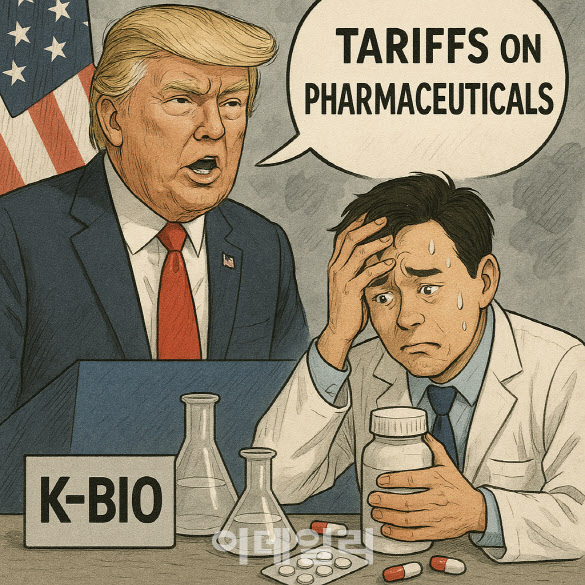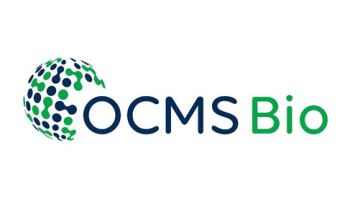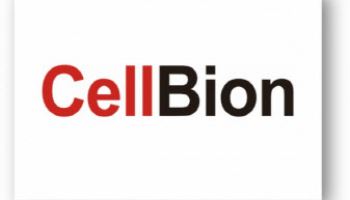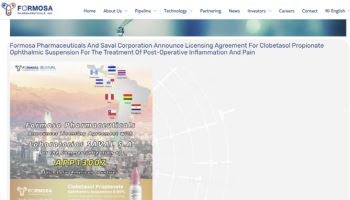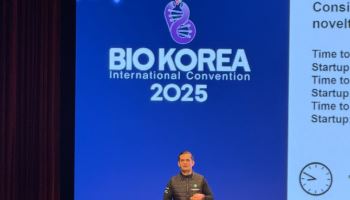[Kim Jinsoo, Edaily Reporter] President Donald Trump is preparing to impose tariffs on pharmaceuticals as part of his protectionist trade agenda, raising concerns among South Korean biopharma companies that rely heavily on the U.S. market. While immediate effects on K-Bio are expected to be limited, industry analysts say long-term repercussions are likely, warranting a proactive response.
On May 6, President Trump signed an executive order aimed at boosting domestic drug manufacturing. When asked about the timing and rate of upcoming tariffs on pharmaceuticals, Trump responded that details would be announced “over the next two weeks.” He added, “We are being very unfairly taken advantage of when it comes to pharmaceuticals.”
The executive order also directs the Food and Drug Administration (FDA) to shorten approval times for domestic drug manufacturing facilities. It similarly instructs the Environmental Protection Agency (EPA) to expedite relevant approval processes.
Additional reported measures include: Higher inspection fees for foreign drug manufacturing plants, Revisions to active pharmaceutical ingredient (API) origin reporting requirements, and Potential publication of non-compliant facilities.
The U.S. is the largest export destination for South Korean pharmaceutical products. According to Korea Customs Service data, Korea exported $1.359 billion worth of drugs to the U.S. last year, a 20-fold increase from $33 million in 2015.
Companies likely to be directly affected by the proposed tariffs include Samsung Biologics, Celltrion, and SK Biopharmaceuticals. However, these firms have already implemented mitigation strategies to minimize the impact.
Samsung Biologics: Minimal Exposure
Samsung Biologics is expected to experience limited impact due to its focus on contract development and manufacturing (CDMO) services, particularly for drug substances (DS), which typically account for only 10% of the final drug price. Pharmaceutical clients may absorb tariff-related costs by raising average selling prices (ASP).
Moreover, 65% of Samsung Biologics’ revenue comes from Europe, while the U.S. accounts for just 25%, further buffering the firm from potential fallout. Shin Young Securities analyst Jung Yoo-kyung noted that U.S.-based CMO facilities may shift their focus to domestic demand, potentially increasing reliance on Samsung Biologics.
Celltrion: Short-Term Shield, Long-Term Risk
Celltrion, which markets seven drugs in the U.S. including autoimmune therapies like Remsima, Zymfentra, Yuflyma, and Steqima, as well as cancer drugs Vegzelma, Truxima, and Herzuma, has already preemptively stocked nine months’ worth of inventory in the U.S. to soften any tariff shocks.
However, the company is also taking steps such as securing API stock and leveraging local CMOs, which may temporarily reduce profitability. Celltrion has even hinted at building a U.S. manufacturing facility.
DB Financial Investment analyst Lee Myung-sun projected that Celltrion’s Q1 revenue and operating profit would fall short of expectations at 855 billion won and 181.5 billion won, respectively. She noted that if tariff-related costs persist, limited improvement in cost of goods sold could dampen operating margins.
SK Biopharmaceuticals: Ahead of the Curve
SK Biopharmaceuticals, which is banking on its epilepsy drug Xcopri to become a blockbuster, appears largely insulated from tariff impacts. The company has already secured FDA-approved U.S.-based CMO facilities.
While API manufacturing still takes place in Korea and the tablets are packaged in Canada before reaching the U.S., SK Biopharmaceuticals has long pursued a U.S. production strategy and is now equipped to pivot to local manufacturing as needed. The company also has six months’ worth of inventory in the U.S., ensuring uninterrupted supply.
Broader Industry Impact Likely Limited
Most other Korean pharma and biotech companies are expected to see limited impact, as they typically enter the U.S. market through license-out agreements during pipeline development rather than direct product exports.
One prime example is Yuhan Corp.’s non-small cell lung cancer drug Lekraza, which was licensed to Johnson & Johnson subsidiary Janssen in 2018. Since all U.S. sales are produced domestically, they are exempt from tariffs.
A Yuhan spokesperson stated, “Our revenue is based on royalties from drugs manufactured in the U.S., not from exports of products made in Korea, so we are unaffected by tariffs.”
The possibility of high U.S. drug tariffs could drive Korean biopharma firms to pursue more aggressive license-out strategies to reduce risk and uncertainty.
Lee Seung-kyu, vice chair of KoreaBIO, said, “Drug development doesn’t happen overnight, so there won’t be a major immediate impact on K-Bio. But with CDMO industry shifts such as Japan’s Fujifilm ramping up U.S. operations, a long-term strategic approach is essential.”
|
The executive order also directs the Food and Drug Administration (FDA) to shorten approval times for domestic drug manufacturing facilities. It similarly instructs the Environmental Protection Agency (EPA) to expedite relevant approval processes.
Additional reported measures include: Higher inspection fees for foreign drug manufacturing plants, Revisions to active pharmaceutical ingredient (API) origin reporting requirements, and Potential publication of non-compliant facilities.
The U.S. is the largest export destination for South Korean pharmaceutical products. According to Korea Customs Service data, Korea exported $1.359 billion worth of drugs to the U.S. last year, a 20-fold increase from $33 million in 2015.
Companies likely to be directly affected by the proposed tariffs include Samsung Biologics, Celltrion, and SK Biopharmaceuticals. However, these firms have already implemented mitigation strategies to minimize the impact.
Samsung Biologics: Minimal Exposure
Samsung Biologics is expected to experience limited impact due to its focus on contract development and manufacturing (CDMO) services, particularly for drug substances (DS), which typically account for only 10% of the final drug price. Pharmaceutical clients may absorb tariff-related costs by raising average selling prices (ASP).
Moreover, 65% of Samsung Biologics’ revenue comes from Europe, while the U.S. accounts for just 25%, further buffering the firm from potential fallout. Shin Young Securities analyst Jung Yoo-kyung noted that U.S.-based CMO facilities may shift their focus to domestic demand, potentially increasing reliance on Samsung Biologics.
Celltrion: Short-Term Shield, Long-Term Risk
Celltrion, which markets seven drugs in the U.S. including autoimmune therapies like Remsima, Zymfentra, Yuflyma, and Steqima, as well as cancer drugs Vegzelma, Truxima, and Herzuma, has already preemptively stocked nine months’ worth of inventory in the U.S. to soften any tariff shocks.
However, the company is also taking steps such as securing API stock and leveraging local CMOs, which may temporarily reduce profitability. Celltrion has even hinted at building a U.S. manufacturing facility.
DB Financial Investment analyst Lee Myung-sun projected that Celltrion’s Q1 revenue and operating profit would fall short of expectations at 855 billion won and 181.5 billion won, respectively. She noted that if tariff-related costs persist, limited improvement in cost of goods sold could dampen operating margins.
SK Biopharmaceuticals: Ahead of the Curve
SK Biopharmaceuticals, which is banking on its epilepsy drug Xcopri to become a blockbuster, appears largely insulated from tariff impacts. The company has already secured FDA-approved U.S.-based CMO facilities.
While API manufacturing still takes place in Korea and the tablets are packaged in Canada before reaching the U.S., SK Biopharmaceuticals has long pursued a U.S. production strategy and is now equipped to pivot to local manufacturing as needed. The company also has six months’ worth of inventory in the U.S., ensuring uninterrupted supply.
Broader Industry Impact Likely Limited
Most other Korean pharma and biotech companies are expected to see limited impact, as they typically enter the U.S. market through license-out agreements during pipeline development rather than direct product exports.
One prime example is Yuhan Corp.’s non-small cell lung cancer drug Lekraza, which was licensed to Johnson & Johnson subsidiary Janssen in 2018. Since all U.S. sales are produced domestically, they are exempt from tariffs.
A Yuhan spokesperson stated, “Our revenue is based on royalties from drugs manufactured in the U.S., not from exports of products made in Korea, so we are unaffected by tariffs.”
The possibility of high U.S. drug tariffs could drive Korean biopharma firms to pursue more aggressive license-out strategies to reduce risk and uncertainty.
Lee Seung-kyu, vice chair of KoreaBIO, said, “Drug development doesn’t happen overnight, so there won’t be a major immediate impact on K-Bio. But with CDMO industry shifts such as Japan’s Fujifilm ramping up U.S. operations, a long-term strategic approach is essential.”
김진수 kim89@





